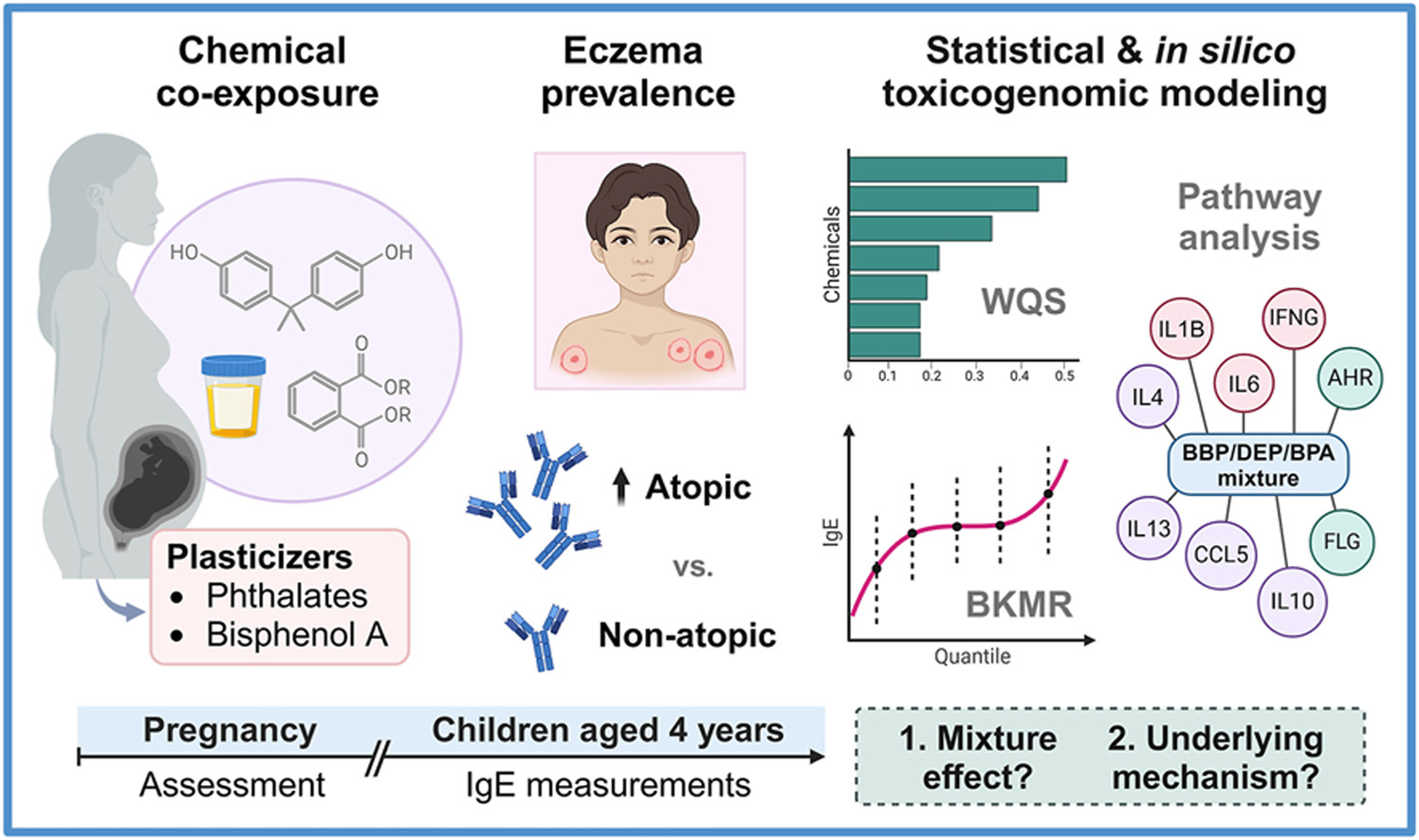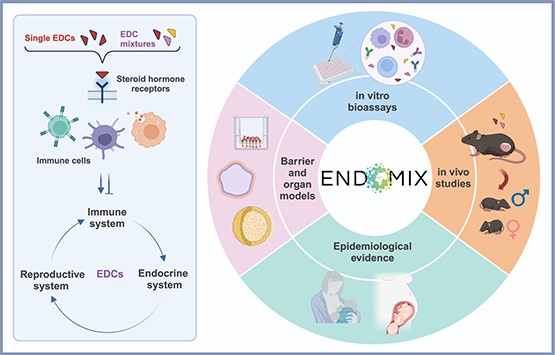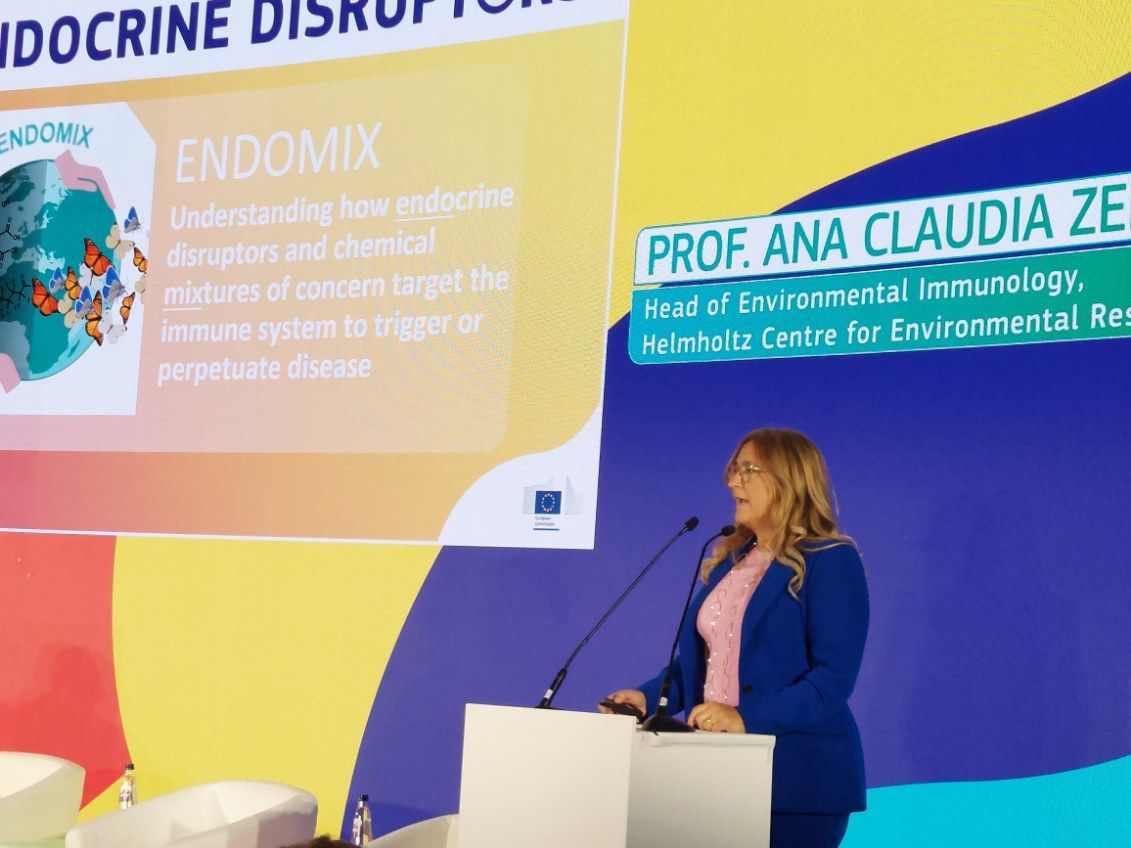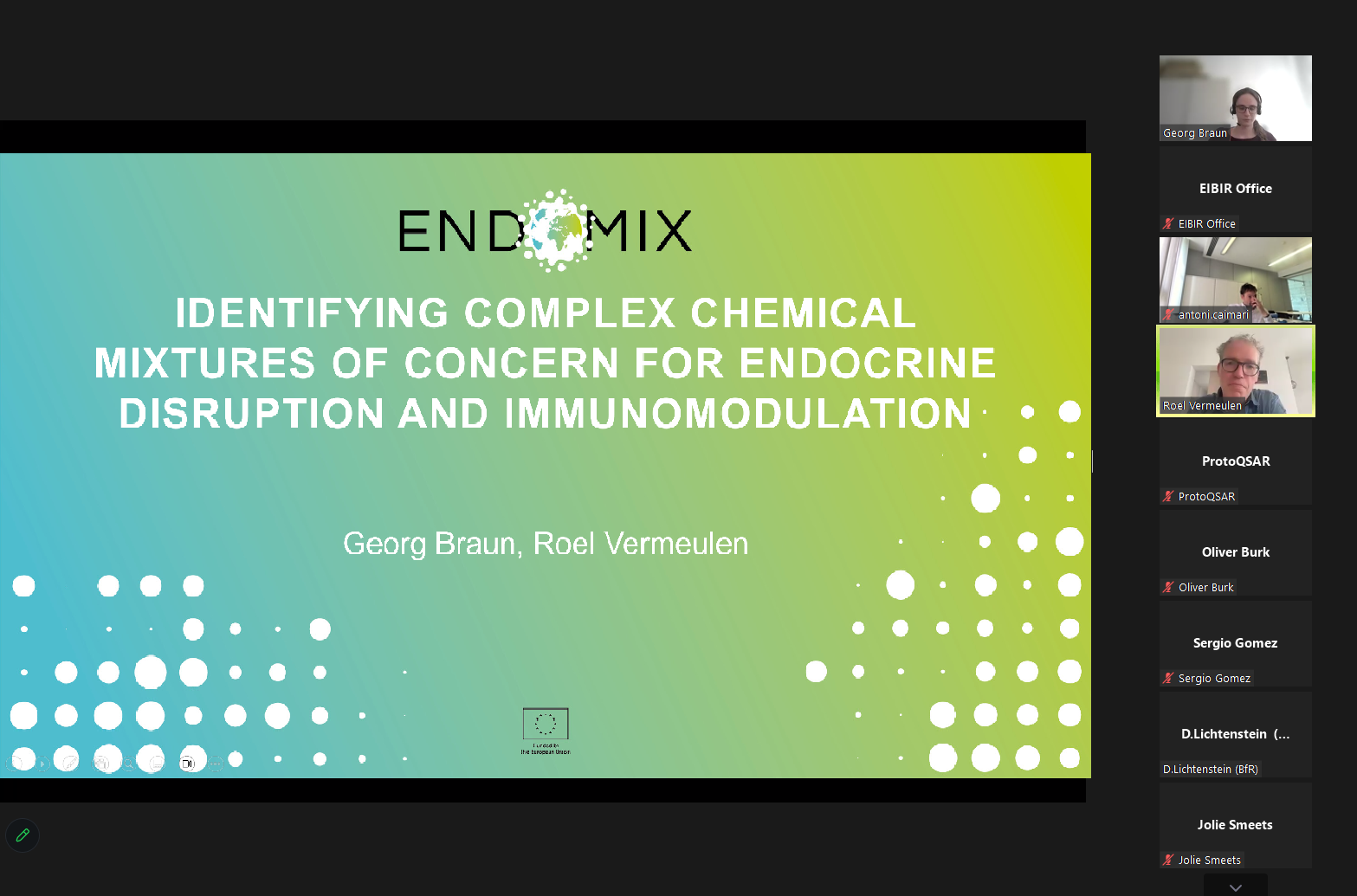
First Achievements
The ENDOMIX project explores how mixtures of endocrine-disrupting chemicals (EDCs) affect health across the human lifespan, with a focus on

The ENDOMIX project explores how mixtures of endocrine-disrupting chemicals (EDCs) affect health across the human lifespan, with a focus on

New Study from ENDOMIX Project Links Prenatal Chemical Exposure to Eczema in Children ENDOMIX has published an exciting new study

“Healthy beginnings, hopeful futures” is this year’s theme of the World Health Day 2025, which emphasizes the need to promote

We are excited to share our latest ENDOMIX project video, offering an insightful look into endocrine-disrupting chemicals (EDCs) and their

We are excited to share that the first edition of our newsletter is now available! This newsletter provides a comprehensive

Prof. Ana C. Zenclussen is an expert in feto-maternal immune communication and heads the Department of Environmental Immunology at UFZ.

We are proud to announce the release of the first publication from the ENDOMIX project! Titled “The ENDOMIX perspective: how

We are pleased to share that ENDOMIX participated in the ENKORE Cluster session at the 6th Annual Forum on Endocrine

We are happy to share with you that the ENKORE cluster website is now live! Explore how 5 projects join

Yesterday, ENDOMIX organized an engaging online workshop on chemical mixtures linking in with the ENKORE cluster activities. Led by experts